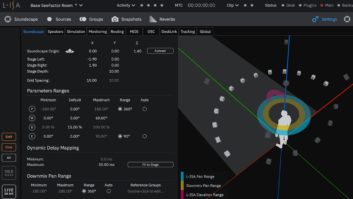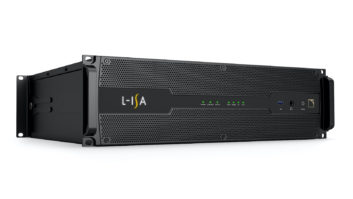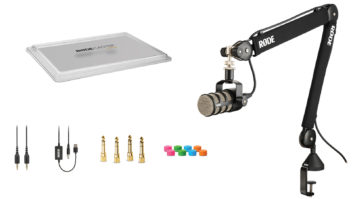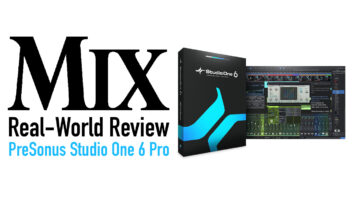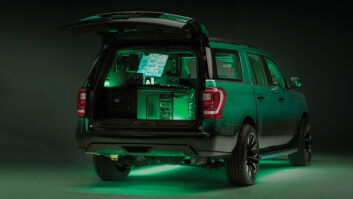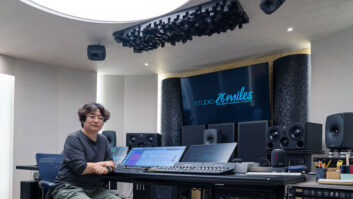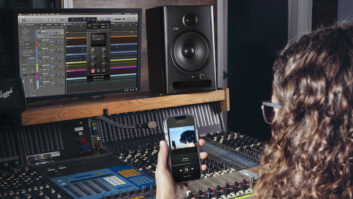Lone Scout Studio is the home of the Spanic Boys, Milwaukee’s hardest-rocking father-and-son band. The Spanics have made eight guitarrific, smart roots-influenced albums, the most recent of which is Torture (on Checkered Past Records, reviewed in May 2001 Mix). They’ve been moving toward recording in project studios since starting the band in the late ’80s.
“We did our first album in 1987, when I was like 17, and [recording technology] always interested me,” says Ian Spanic, the younger and more gear-oriented member of the family. “I always paid attention to what was going on. I learned from engineers and eventually started a smaller studio, and it just grew.
“There used to be a really big studio out in Lake Geneva; it used to be Royal, and then it became Music Head,” he continues. “It was an SSL room. When that went out of business, it kind of freed up some of the [engineers], including one of the people I worked with on the last album, Trevor Sadler. He has a lot of knowledge and has really helped us.”
Lone Scout’s 20×16-foot, wood-floored tracking room and control room are built into the basement of a large house. The studio also includes two guitar closets and an isolation area. “They’re not huge rooms, but we have about 8-foot ceilings, so it’s a nice, open space — nice-sounding rooms. We designed it ourselves, though we didn’t do all the actual building work. It’s all double 2×6 walls, and it’s really soundproof. Most people don’t even know it’s there.”
Ian says that, for him and his dad, an appreciation for recording gear is a natural extension of their focus on guitars. “We really have a love for vintage guitars and amps,” he explains. “Only a 1956 Fender sounds like a ’56 Fender amp to me, and I think it’s the same with the gear.
“When we’re doing vocals, I use a U47 for mine and I use a Telefunken ELAM 250 for my dad. We sing at the same time. I face the mics toward each other, and we sing live. When you’re harmonizing like that, it’s a lot easier when you can see each other’s lips, and I found using the ELAM has a different top end to it. And the harmonies sound different than if we both used the same mic. The 47 is kind of midrange-y, which I like for the part I do.
“Almost all of our mics are older mics,” he continues. “I got some RCA ribbon mics from a collector, and they were all original-owner pieces. There was an older studio in town that had been built in 1951, I think, and when the fellow died in the ’80s, his wife just sealed it up. I got a lot of our Pultecs through that. They were also all original-owner: Pultecs and RCA compressors and things — with the original owner manuals. It’s nice when the gear hasn’t been around a lot and fooled with, and these things had just kind of sat there — no changed parts, all of it was really original.
“I have to say I’m also a big fan of the B.L.U.E. Bottle mic. That’s one of the new mics I’m really impressed with. I was hesitant to buy a new mic. I’m so happy with the way it’s built, and I use that mic quite a bit.”
Lone Scout’s control room is built around a 32-channel Soundcraft DC-2000 console with Flying Faders that’s been upgraded with a DC2020 computer. Tape machines include Otari MX-80 24-track 2-inch analog with CB124 remote, 32 tracks of Alesis ADAT XT20s with BRC, and, one of Ian’s favorite pieces of gear, an ATR 102 half-inch that was fully restored by Mike Spitz of ATR Service. The Torture album was recorded to ADAT and mixed to the ATR.
“We used Telefunken V72s for guitar, bass and vocals,” Ian says, “and API mic pre’s for drums and acoustic guitars. I often use a Manley ELOP for vocals, and 1176s for bass and drums. I also like to use an RCA 44 on the room when tracking drums or a Western Electric 639. I mike the guitar amps with U47s for the most part.”
Since amassing such a unique collection of gear, the Spanics have begun attracting outside artists to their facility. Under the name Spanic Productions, Ian has produced roots rock releases by The Riptones and David Todoran, an album by local blues harmonica player Jim Liban and Celtic-influenced recordings by fiddler Susan Jeske-Dermody. At the time of this interview, Ian and his dad, Tom, were back at work on their next Spanic Boys release.
“Dad likes microphones,” Ian says, “but he’s more interested in the music side. I kind of geek out on the technical stuff, and he definitely knows what’s going on, but he leaves it to me, which is nice.”

